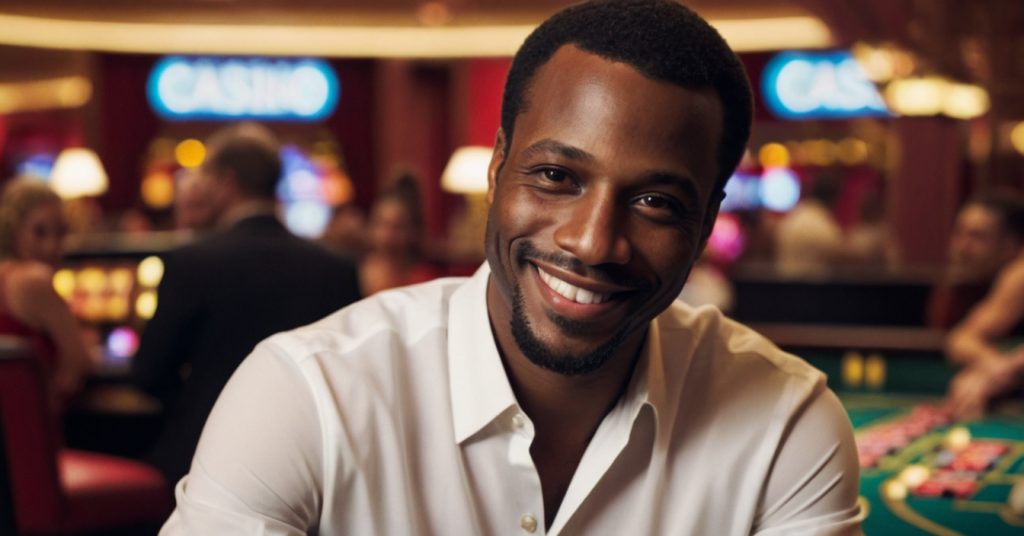Casinos are often seen as paradises of entertainment, glitzy nights, and, of course, free drinks. Who can resist the allure of a well-dressed waiter offering a complimentary cocktail as you try your luck on the slot machines? But here’s the thing: casinos don’t just hand out freebies because they’re feeling generous. There’s a calculated strategy behind every “complimentary” drink or buffet voucher, and it’s all about keeping you right where they want you — inside the casino, spending money.
In fact, the cost of that drink you’re enjoying is already baked into the casino’s business model. Ever wonder why you rarely see a clock or a window in a casino? They don’t want you to leave. The free drink is just another tool to blur the sense of time and rational thinking, making it harder for you to realize how much you’re spending or how long you’ve been there. It’s a fascinating psychological play, designed to keep you happy and in the game. The idea is simple: the longer you stay, the more likely you are to part with your money.
The Science of Indulgence: Alcohol and Decision-Making
Let’s get a little scientific here. Studies show that alcohol affects our prefrontal cortex — the part of the brain responsible for decision-making. With a few cocktails in your system, you’re more likely to take risks, which in a casino translates to placing bigger bets. It’s a subtle but effective way of loosening the reins on your self-control. Suddenly, the blackjack hand you were nervous about seems like a sure win, or the slot machine that hasn’t hit all night feels like it’s due.
But this psychological nudge doesn’t stop at free drinks. Casinos offer a range of perks designed to make you feel special and important, which can lead to what psychologists call “reciprocity.” Basically, if someone does something nice for you — say, offering you a free drink or buffet — you’re more likely to feel indebted, even if that debt is purely emotional. In the world of casinos, this feeling often translates into you spending more time and money.
Free Buffets, Luxurious Stays, and the Perks That Keep You Playing
The allure of free food and luxurious stays at casino resorts isn’t just about keeping guests comfortable; it’s about creating an environment where players feel like winners, even if they’re losing money. The idea is to make you feel pampered and important, which in turn makes the losses feel less painful. Imagine losing $200 at the poker table, but then being comped a $50 dinner. Psychologically, the pain of the loss is dampened because you’ve received something “in return.”
Casinos know that players with a full stomach and a comfortable place to stay are more likely to keep gambling. So, the free buffet, the swanky hotel room upgrade — these aren’t just perks, they’re investments in your future spending.
A personal story I often share when talking about this is from my own trip to Las Vegas. I remember being thrilled when the casino offered me a free steak dinner after I’d had a rough night at the slots. I didn’t think much of it until later, when I realized the meal — while free — had softened the sting of my losses. The casino knew that by making me feel valued, I’d likely return to the tables the next day, which I did. The meal cost them little, but it kept me coming back for more.

The Loyalty Trap: How Casinos Keep You Coming Back
Another key tactic casinos use is their loyalty programs, where the more you play, the more perks you earn. It’s easy to get caught up in the chase for those “comps” — free stays, shows, or even shopping credits. And while you may think you’re getting a great deal, the reality is that the more you’re rewarded, the more you spend.
Here’s where things get really interesting: casino loyalty programs often use a tiered system, meaning that as you move up in status, the rewards get bigger and better. This gamifies your relationship with the casino, making you want to hit that next level — whether that’s earning enough points for a free weekend stay or tickets to an exclusive event. It taps into the same psychological need for achievement that video games exploit, and before you know it, you’re spending more time — and more money — trying to level up.
Interestingly, research from the University of Nevada suggests that loyalty programs might actually make people underestimate how much they’re spending. The rewards become a distraction, and players focus more on what they’re “earning” rather than what they’re losing. In this way, casinos are not only offering perks but also managing your perception of the entire gambling experience.
Casinos: Masters of the “Sunk Cost” Fallacy
The “sunk cost” fallacy is another powerful psychological concept casinos leverage. Essentially, it’s the idea that once you’ve invested time or money into something, you’re more likely to keep investing in the hopes of a return, even when logic suggests you should walk away. By offering free drinks, meals, and other perks, casinos make you feel like you’ve already earned something just by being there. The more you stay, the harder it becomes to leave because you’ve already “put so much in.”
Think of it like this: if you’ve spent an hour playing slots and have received a free drink and buffet coupon, your mind rationalizes that you’re already getting something back. This creates a subtle but strong motivation to keep playing, because after all, you’ve already invested the time — why not go a little longer?
I once met a man at a poker table in Atlantic City who confessed that he had been playing for 14 hours straight. When I asked why, he said, “Well, I’ve already been here this long, might as well stick it out a little more.” That’s the sunk cost fallacy in action — the casino didn’t need to do much more than keep him comfortable with free drinks and snacks to ensure he stayed far longer than he intended.

Are Free Perks Really “Free”?
Let’s flip the script for a moment. Are these perks truly free? In one sense, yes, they don’t cost you anything upfront. But in another sense, they are far from free. You’re paying with your time, your attention, and more often than not, your money. The cost is baked into the casino’s financial model, with the assumption that the average player will spend enough to cover the cost of the freebie and then some.
In some ways, it’s like those free trials for online subscriptions. You get a taste, and if you’re not careful, you end up subscribed for the long haul, often without even realizing how much you’ve spent until it’s too late.
The True Cost of “Free” in the Casino World
So, why do casinos give away free drinks and other perks? It’s not just a marketing strategy; it’s a carefully calculated psychological game. From the way alcohol loosens decision-making to how a complimentary buffet eases the pain of a loss, every “free” perk is designed to keep you spending. Casinos best online slots real money Canada have mastered the art of making you feel like a valued guest while quietly ensuring that you’re parting with more money than you may realize.
In the end, those free drinks are anything but. They’re part of a larger system that ensures you stay, play, and pay. The next time you accept a complimentary cocktail or buffet ticket, remember that nothing in a casino is truly free — except perhaps the view of you reaching for your wallet.

